September 2017 Ideas and Innovation
Read the articles selected in September 2017
The impossibile burger: inside the strange science of the fake meat that “bleeds”
by Matt Simon
Source: Wired, 20 September
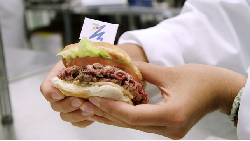
A plant-based, genetically engineered burger reproducing the taste and consistency of beef meat and environmentally sustainable poses, however, issues of safety for consumers. This only the beginning of a new era that needs to feed 9 billion people.
Read more:
https://www.wired.com/story/the-impossible-burger/
CRISPR used to peer into human embryos’ first days
by Heidi Ledford
Source: Nature, 20 September

A research based on CRISPR-Cas9, a gene-editing technique used to fix disease-causing mutations and prevent genetic disorders has studied the role of the protein OCT4 in the embryo development, opening the way to a human functional genetics.
Read more:
http://www.nature.com/news/crispr-used-to-peer-into-human-embryos-first-days-1.22646
Gut germs appear to play role in multiple sclerosis
by Sharon Begley
Source: Scientific American, 12 September
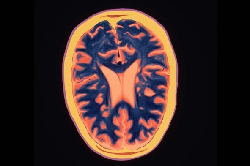
Two studies show that intestinal bacteria of people with multiple sclerosis are different from healthy people’s, and promote disease-causing immune activity, increasing the risk of MS. However the microbiome is not the definitive solution to treat or prevent this disease.
Read more:
https://www.scientificamerican.com/article/gut-germs-appear-to-play-role-in-multiple-sclerosis/
A strong point
by Jenny Rough
Source: The Washington Post, 19 September
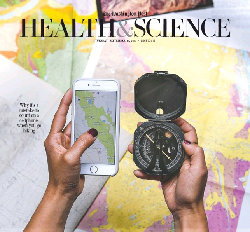
The heavy dependence on technology to orient ourselves in the space has made lose critical skills that help us when we get lost. While devices can give a false sense of security, learning how to use map and compass can save our lives.
With designer bacteria, crops could one day fertilize themselves
by Megan Molteni
Source: Wired, 14 September

Fertilizers are pollution factors: the ag tech is trying to substitute them synthesizing bacteria, similar to those self-produced by legumes plantations and called nitrogen-fixers. Used in the corn, wheat, and rice crops, they could work like natural fertilizers.
Read more:
https://www.wired.com/story/with-designer-bacteria-crops-could-one-day-fertilize-themselves/
Antibiotic resistance in fish farms is passed on from fish food
Source: The Economist
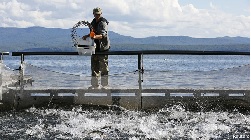
A study reported on Environmental Science and Technology reveals that heavy antibiotic use in fishmeal formulations for fish farms determines a transfer of genes associated with drug resistance and migrating into the environment.
Read more:
Lawrence Lessig: “Le web rend notre culture vulnérable aux extrêmes"
by Samuel Laurent
Source: Le Monde, 14 September
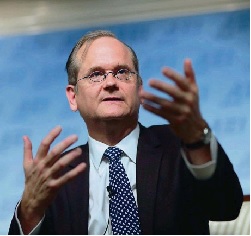
Once defined as space for a real participative democracy, Internet has become a container of discourses based on irrationality and hate, fomented by private interests and geopolitical factors. A more severe law will do little.
Un trou noir du 3e type dans la galaxie?
by Tristan Vey
Source: Le Figaro, 12 September
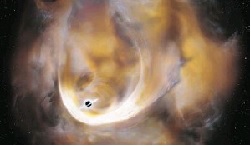
A study published on Nature Astronomy hypothesizes the existence of an extremely massive black hole which may explain the movement of a gas cloud middle in our galaxy. It could be a third type of black holes, what would have implications on galaxies’ dynamics and structure.
Astrophicist’s hunch leads to an ancient nova
by Ben Guarino
Source: The Washington Post, 1 September
Reconstructing astronomical records kept along centuries, astrophysicists have traced an ancient nova discovered by Korean astronomers in 1437 and become a dwarf nova at a different stage of development. A lovely piece of astronomy’s history.
Critics round on “lazy” alien probe backed by Hawking
by Greg Wilford
Source: The Independent, 3 September
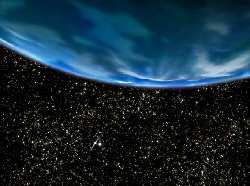
The radio signals recently picked up by astronomers working for Stephen Hawking’s Breakthrough Listen project led to speculations they could come from extraterrestrial technology and are now an ongoing mistery which anyway deepens our knowledge of the universe.
Phones are changing how people shoot and watch video
by Clive Thompson
Source: Wired, 7 September
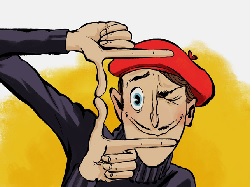
Smartphones are creating a new grammar, that changes the storytelling and the contents of videos. The prevalent verticality in the framings prefers the individual aspects and makes harder to catch the contexts. The spectator too is get involved differently in the vision.
Read more:
https://www.wired.com/story/thompson-smartphone-video/
Why it is significant that Venice Film Festival put VR on the bill
Source: The Economist, 5 September

If festivals used to be a ritual reassuring spectators and cineasts on the traditional experience of the film, immersive and collective, today the virtual reality is starting to affirm its place before a jury judging VR titles for the quality of storytelling and not for the technical pyrotechnics.
Info
- Pubblicato il : 19/12/2017 Modificato il : 04/04/2019

